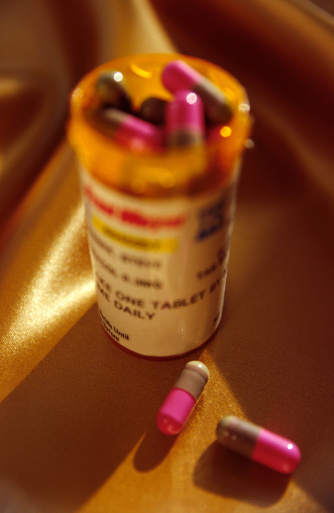 On Tuesday, President Barack Obama participated in the National Rx Drug Abuse and Heroin Summit in Atlanta, Georgia. While meeting with people in recovery, family members, medical professionals, mental health providers, and law enforcement officers, he announced new measures to prevent opioid abuse and addiction. The proposal would allocate an additional $1.1 billion dollars to treatment and prevention efforts. Some of the proposals include:
On Tuesday, President Barack Obama participated in the National Rx Drug Abuse and Heroin Summit in Atlanta, Georgia. While meeting with people in recovery, family members, medical professionals, mental health providers, and law enforcement officers, he announced new measures to prevent opioid abuse and addiction. The proposal would allocate an additional $1.1 billion dollars to treatment and prevention efforts. Some of the proposals include:
- Improving access to treatment by increasing the number of people to whom doctors can prescribe buprenorphine from 100 to 200. Buprenorphine can treat opioid addiction in some people. The Department of Health and Human Services is providing an additional $94 million in new funding to 271 community mental health centers to treat addiction in as many as 124,000 new people. The Substance Abuse and Mental Health Services Administration is releasing $11 million in additional funding for 11 states to expand medication-assisted addiction treatment.
- Creating the Mental Health and Substance Use Disorder Parity Task Force. This interagency group will be chaired by the Domestic Policy Council to ensure access to mental health care, monitor health care plans for compliance with mental health parity laws, and promote best practices for the treatment of addiction and mental health issues.
- Strengthening a health and human services rule to ensure mental health care access parity for Medicaid and Children’s Health Insurance Program (CHIP) recipients.
- An additional $7 million in funding for the Department of Justice’s COPS Anti-Heroin Task Force Program.
- Implementing and expanding syringe programs for people who use injectable drugs. These programs can slow the spread of HIV and other blood-borne diseases among drug users.
Brain Stimulation May Help People with Anorexia
Repetitive transcranial stimulation (rTMS), a treatment already approved for depression, may also reduce symptoms of anorexia. A single session reduced the urge to restrict calories, as well as feelings of being fat. As many as 20% of people with anorexia die from the condition, so researchers are hopeful this treatment could offer longer-term benefits.
What It’s Like to Be a Male Survivor of Sexual Assault
According to the Centers for Disease Control and Prevention (CDC), 1 in 6 men experience sexual abuse before age 18, and 1 in 59 men have been raped in their lifetime. As part of this April’s Sexual Assault Awareness Month, the Rape, Abuse, and Incest National Network (RAINN) is highlighting the stories of male survivors, who often feel left out of the discussion surrounding sexual abuse.Body Image Studies Explore the Source of Much of Our Anxiety
A negative body image can have lasting effects on health and relationships, and some groups are more vulnerable to body image issues than others. One recent study found Asian-American women living in California and Hawaii were less satisfied with their appearance than white women. Discrimination, including media that portrays primarily white women, may explain some of the disparity.
Mental Illness Mostly Caused by Life Events Not Genetics, Argue Psychologists
Though research often focuses on genetic explanations for mental health diagnoses, some psychologists believe life events play a more prominent role. Childhood trauma is an especially significant predictor of subsequent mental health issues.
Troubled Kids’ Psychiatric Care Often Delayed by Insurance Rules
Insurance company rules that require “prior authorization” for mental health care often result in lengthy waits for children in need of immediate mental health services. In one Rhode Island hospital, case workers spent an average of an hour on the phone seeking approval. In one case, approval took 4.5 hours. All of the authorizations were eventually approved, suggesting prior authorization only delays care.
Patty Duke Was the Original Celebrity Mental Health Champion
Actress Patty Duke died Tuesday from sepsis complications. While many people remember her television and film roles, she was also an early advocate for mental health awareness. Diagnosed with bipolar in the 1980s, Duke wrote a book about her experiences entitled A Brilliant Madness. She lobbied Congress for more mental health research and talked openly about her experiences in interviews. Her son, Sean Astin, established the Patty Duke Mental Health Project in his mother’s honor.

The preceding article was solely written by the author named above. Any views and opinions expressed are not necessarily shared by GoodTherapy.org. Questions or concerns about the preceding article can be directed to the author or posted as a comment below.

 With Loving Eyes: Fostering Your Child’s Positive Body Image
With Loving Eyes: Fostering Your Child’s Positive Body Image Can Dialectical Behavior Therapy Help with Substance Abuse?
Can Dialectical Behavior Therapy Help with Substance Abuse? It Follows: The Long-Lasting Effects of Abuse and Trauma
It Follows: The Long-Lasting Effects of Abuse and Trauma

